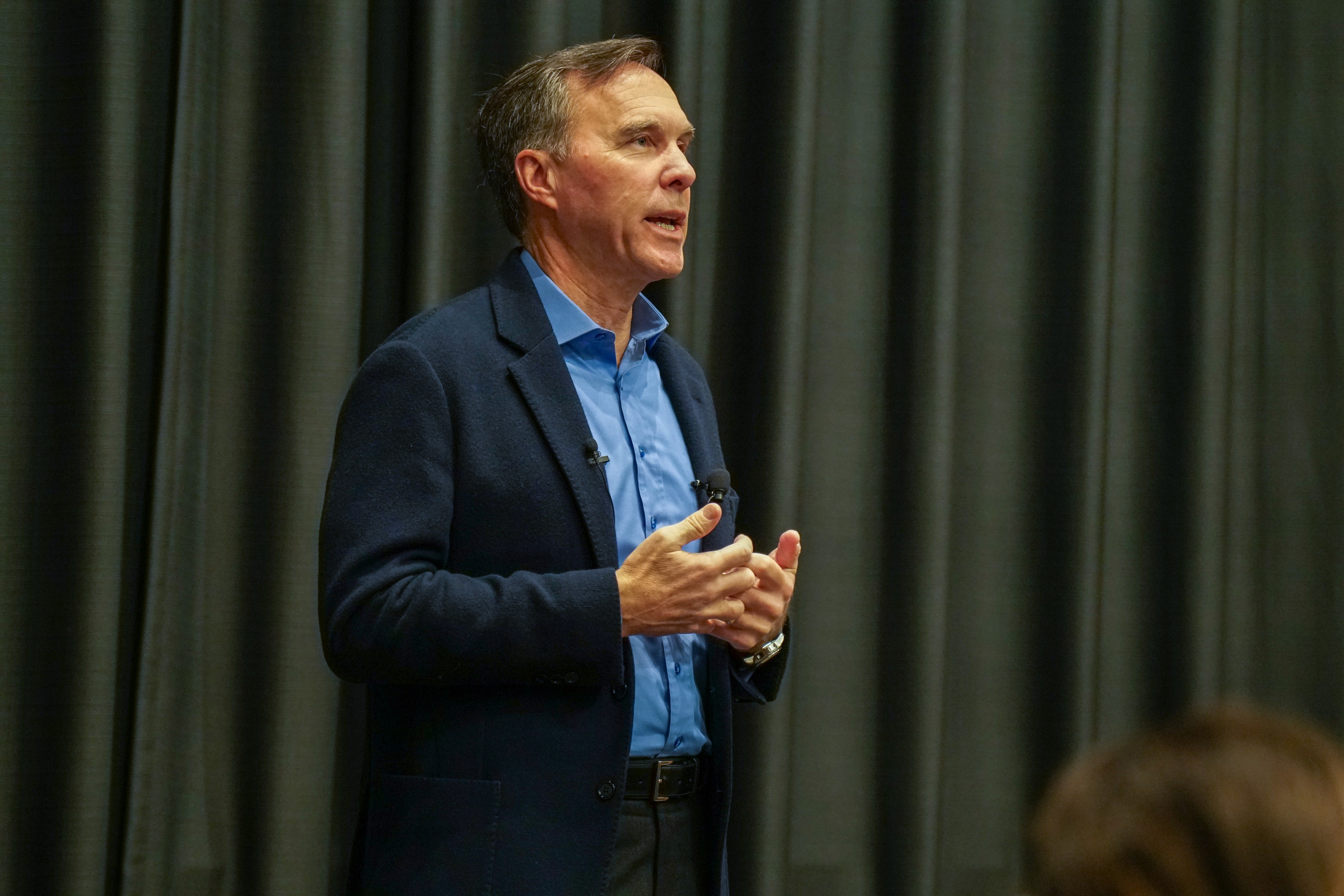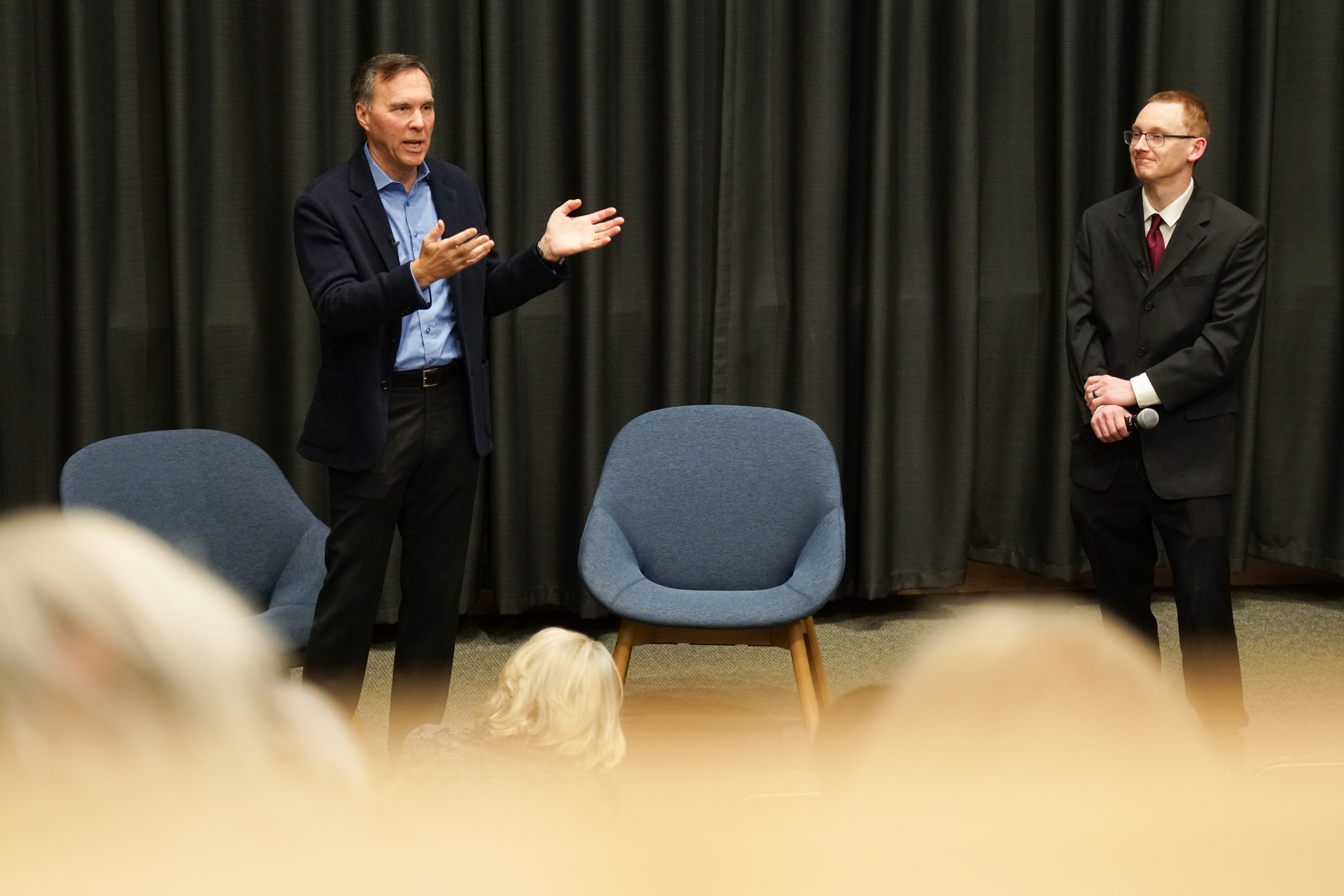U.S.-Canada Relations at a Crossroads: Former Canadian Finance Minister offers Northern Perspective on Recent Tensions
 Daniel Vieira
Daniel Vieira
U.S.-Canada relations are at a crossroads despite years of amicable relations between the two countries. The United States’ new administration has been at odds with Canadian leadership, and tensions have grown between the nations, ranging from fans booing one another during the national anthems at a U.S.-Canada hockey match to the U.S. enacting a 25% tariff on certain Canadian goods. With numerous moving factors, the future of diplomatic affairs between the two countries remains uncertain.
In light of these developments, the MacMillan Center’s Committee on Canadian Studies hosted a series of events last month that examined Canada’s unique history and its place in global diplomacy. With the United States and Canada teetering on the brink of a trade war, former Canadian finance minister and 2021 senior fellow at the Jackson School Bill Morneau delivered a lecture on U.S.-Canadian relations and the potential path forward.
“We wanted to bring some clarity and complexity to this situation we find ourselves in,” said Jay Gitlin, Director of the Committee on Canadian Studies. “We owe it to this community to bring clarity and complexity. And we hope that what was said here today will spread beyond this room and elevate the level of the conversation.”
Brendan A. Shanahan, History Lecturer and an Associate Research Scholar at the MacMillan Center’s Committee on Canadian Studies, moderated the discussion with Morneau, emphasizing the importance of continued open dialogue between the two countries.
“Morneau drew from his unique experience to inform his perspective on the state of current U.S.-Canada relations,” said Shanahan. “He emphasized the importance of Canada and the U.S.-Canada partnership to the American economy and broader geopolitics. He further contended that his time in office had taught him that it was vital for Canadian policymakers to keep lines of communication open and constructive with their American counterparts, even as trade negotiations and other topics emerge—despite the challenges that may arise.”
 Daniel Vieira
Daniel Vieira
Given the complexities of the relationship and the fiscal dynamics at play, Morneau provided valuable insights into the economic forces driving the United States’ current trade policy. He pointed out that understanding these factors is crucial for Canada as it navigates the tensions between the two countries. In particular, he highlighted the impact of tariffs and revenue generation as key drivers of U.S. actions toward its northern neighbor.
“I think the U.S.’s approach to tariffs has a lot to do with revenue generation,” said Morneau. “If we look at the United States in 2025, with a 7% deficit to GDP, it is very challenged in finding ways to raise revenue to address that fiscal problem.”
“And raising taxes is pretty hard when you’ve publicly committed to not raising taxes,” he continued. “So, enter tariffs. Tariffs, which, of course, are taxes, but they’re not called taxes. Tariffs are a particularly regressive form of taxation that can, in fact, raise revenues for the United States. That’s one of the objectives that will be difficult for Canada to deal with.”
Morneau noted that U.S. tariffs on Canadian goods are not unprecedented, citing the U.S. imposition of tariffs on Canadian products in 2018. Because of that experience, Morneau contends that Canada is better equipped to make any necessary adjustments.
“Those tariffs in 2018 are really an instruction manual for what we’re dealing with in 2025,” he said.
Despite the imposed tariffs and the ongoing threats of more from both countries, Morneau remains optimistic about his outlook for U.S.-Canada relations.
“I like to tell people that we need to do two things at once: think about how we can solve our challenges with the United States while also figuring out our opportunities,” said Morneau. “There are things we can do not only to work together with the United States, but also to create more agency for Canada.”
“There is a path forward for us,” he concluded.
The Committee on Canadian Studies hosts numerous inter-disciplinary events for scholars, students, and the public, to support and advance Yale scholarship related to Canada.